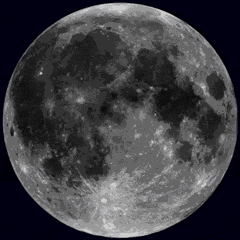<p >Footage released by the Israel Defence Forces has confirmed an air strike on Iran’s Arak heavy water nuclear reactor, located approximately 250 kilometres southwest of Tehran, in the early hours of June 19. Israel’s armed forces reported that the attack was aimed at a reactor component “intended for plutonium production,” which was “designed for the production of high-grade plutonium,” alleging that the facility posed a threat to Israeli security and had the potential to be used to create materials for an Iranian nuclear weapons program. The International Atomic Energy Agency (IAEA) reported that the reactor was damaged, but that it was not nuclear active and there were thus no concerns regarding radioactivity. The attack follows reports of Israeli attacks on Arak in the early hours of June 13, which proved to be false, and confirmed successful attacks on the Natanz nuclear facility that day.</p><p >Israeli government sources have for over two decades alleged that Iran is close to developing nuclear weapons, although critics have asserted that such claims have been intended to provide a pretext for hostile actions, but that there has been no evidence of steps by Tehran to pursue such a capability. U.S.&nbsp;Director of National Intelligence Tulsi Gabbard&nbsp;and officials from the IAEA have been among those <a href="https://responsiblestatecraft.org/tulsi-iran-bomb/" target="_blank">asserting</a> that there was no evidence of a nuclear weapons program, in contrast to the Israeli government narrative.&nbsp;</p><p ><img src="https://militarywatchmagazine.com/m/articles/2025/06/19/article_68540a2e97ddf9_90360615.png" title="Technicians Working at the Arak Heavy Water Reactor"></p><p >The attack on Arak occurred at a time when the Israeli Defence Ministry is <a href="https://militarywatchmagazine.com/article/iran-nkorean-fortress-serious-complications-israel-commando" target="_blank">considering options </a>to target Iran’s best fortified nuclear site, the Fordow uranium enrichment facility, which due to its hardening more than 80 meters underground is expected to be<a href="https://militarywatchmagazine.com/article/why-israel-cant-touch-core-iran-nuclear" target="_blank"> impregnable to airstrikes</a>, including attacks using higher diameter ordinance fielded by the U.S. Air Force. Israel’s sustained attacks on Iranian nuclear infrastructure have fuelled speculation that Iran may launch counterstrikes against Israeli nuclear facilities, with the <a href="https://militarywatchmagazine.com/article/israel-missile-defence-increasingly-depleted-iran" target="_blank">depletion of Israeli air defences</a>, and Iran’s use of <a href="https://militarywatchmagazine.com/article/iran-launches-first-strike-isreal-mach-13-fattah-hypersonic" target="_blank">increasingly advanced ballistic missiles</a>, raising a significant possibility that such facilities could be left highly vulnerable. Israel maintains extensive nuclear infrastructure largely to service its arsenal of an estimated 200 nuclear warheads, with the country’s nuclear stockpiles currently reported to be being expanded.&nbsp;The country developed nuclear weapons in the 1960s with extensive French support, with its nuclear arsenal playing a significant role in shifting the balance of power in the Middle East into line with Western interests during the Cold War. Iran was in the 1970s <a href="https://militarywatchmagazine.com/article/the-shah-s-nuclear-bomb-as-a-western-asset-how-america-supported-iran-s-wmd-program" target="_blank">expected to become</a> the Middle East’s second nuclear weapons state, at a time when it was a close strategic partner of Israel and the Western world under the rule of the&nbsp;Pahlavi dynasty, before the overthrow of the Western-aligned government in 1979 resulted in a worsening of ties with the West and cutting of ties with Israel, and made it imperative for <a href="https://militarywatchmagazine.com/article/israel-doing-the-western-world-s-dirty-work-german-chancellor-praises-attack-on-iran-amid-renewed-support" target="_blank">Western and Israeli interests</a> to limit the country’s power.&nbsp;</p>
